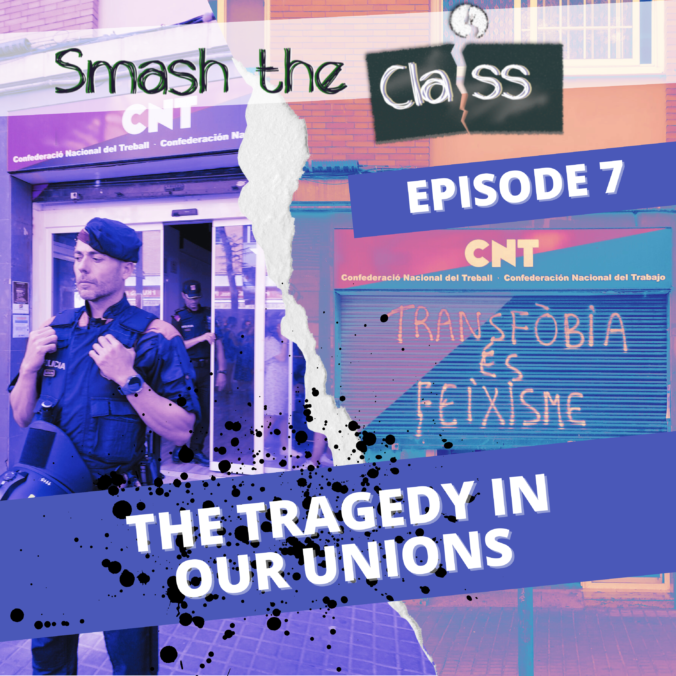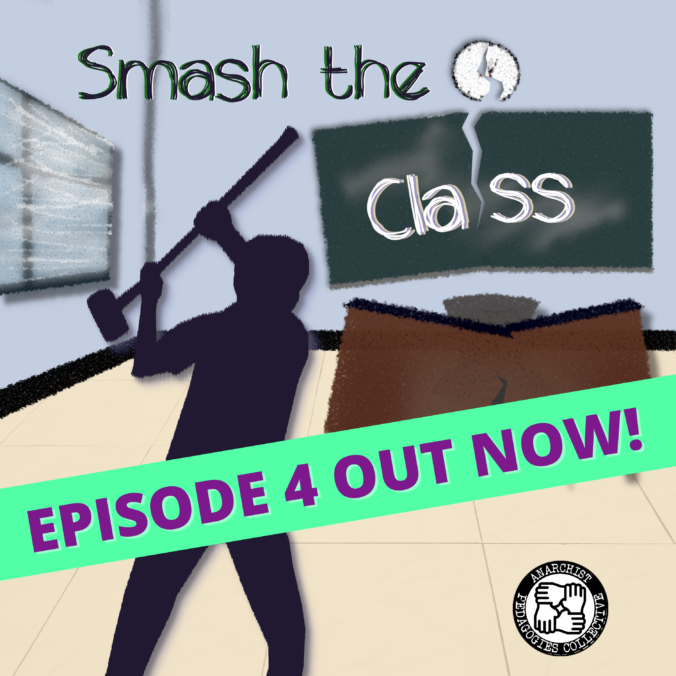Podcast: Play in new window | Download
Notes:
- Images in this episode’s cover have been taken from posts made by Twitter user @anarcobergueda2.
- A full transcript of this episode, complete with clickable sections, can be found here.
In July, CNT Barcelona made a handful of decisions that would lead to people calling for them to be defederated. The primary decision among these was that they decided to work with and willingly platform individuals from a supposed “feminist” organisation who openly question whether trans and gender nonconforming people event have the right to exist. Considering the place they often hold among anarchists as a result of their history, this was particularly jarring and disappointing for a lot of people who heard this news.
But it’s not at all surprising that this would be happening, particularly considering the history of the CNT and its many changes. This is why we wanted to explore this topic by looking at their history and exploring the times that they did reinforce hierarchies that they should’ve work towards tearing down. And since July, more and more people have been speaking out against this. In fact, Houston’s IWW branch put out a statement supporting the calls to defederate from them.
But there’s something missing in this conversation. Anarcho-syndicalist unions have long been places that have promoted labour-focused pedagogy and engaged in labour education through many of their actions (though most people have almost entirely associated this purely to their seminars and workshops). If our unions are going to continue to promote themselves as educational spaces, we need to question what they’re trying to promote and teach, especially if it’s in line with the current ideology of fascist movements that many of us are struggling against.
We also wanted to talk with Mireia, who has been part of the CNT. As someone who endured one of the more recent membership purges from the CNT, she is in a unique position to explore many of the issues taking place there and to look at what we can do to improve our organisations (even if that improvement requires that we dismantle something entirely).
But we also want to make it clear that these things are continuously happening around us. This is not the first nor the last time we will see this, but we need to recognise these patterns. While readings aren’t the only answer, there are a few that could help further this conversation and help outline noticeable patterns to look out for and struggle against. One such is a reflection that was published by members who split from Black Rose/Rosa Negra, highlighting the issue of patriarchy and the consistent refusal to deal with harmful and abusive behaviours. Another is a piece that was written by Adrienne Onday discussing the failure of apparently radical cishet men who often fail to step up in situations where they should.
Patriarchy is something that all people and organisations need to deal with, even when they believe otherwise.





